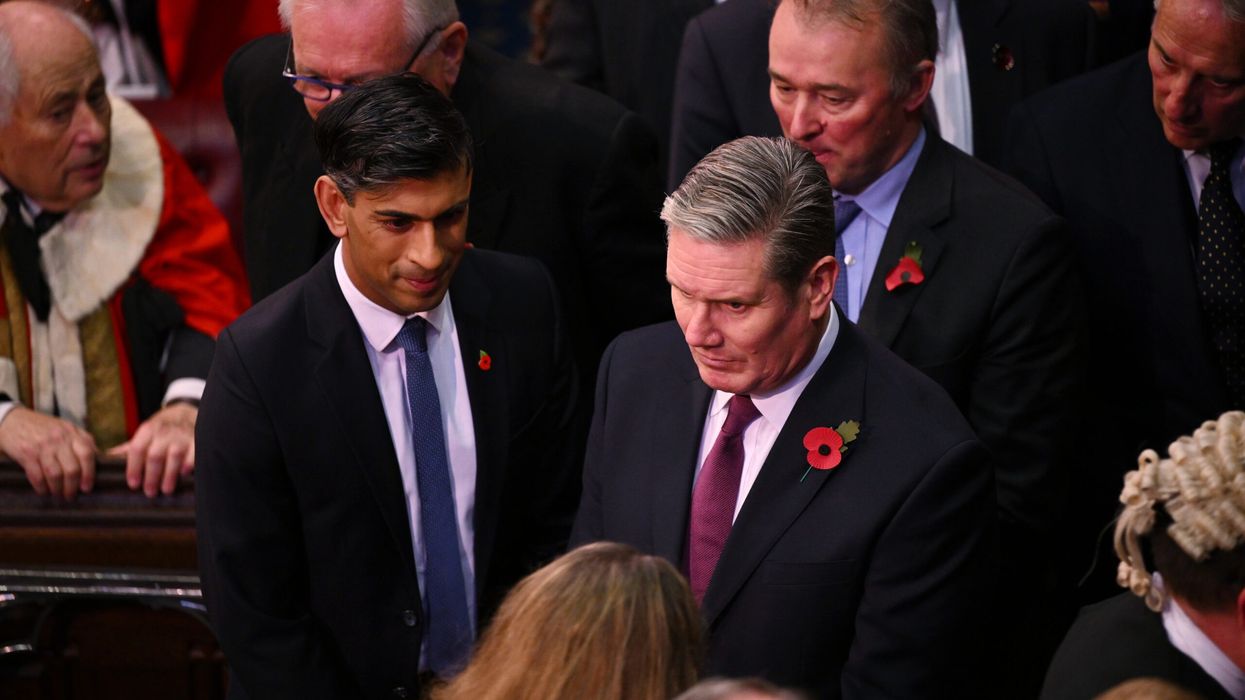PARLIAMENT dissolved on Thursday, setting the stage for a general election on July 4, likely to bring Labour to power after 14 years of Conservative rule.
Campaigning officially began as all 650 seats in parliament became vacant at one minute past midnight, in line with the electoral schedule.
Prime minister Rishi Sunak's rain-drenched election announcement marked the start of campaigning, with some observers interpreting the downpour as a bad omen.
Sunak called the election for July 4, earlier than widely expected, in an attempt to regain momentum as his party falls in opinion polls.
Labour, after 14 years in opposition, now has a chance to return to power under leader Keir Starmer, a former human rights lawyer.
Trailing Labour by double digits in polls, the Conservative party faces a mass exodus of parliamentarians, with 129 MPs announcing they will not stand for re-election. Among them are 77 Conservatives, an unprecedented number for a governing party.
Some Tories seeking re-election have expressed frustration with the early election date. Steve Baker, Secretary of State for Northern Ireland, decided to continue his vacation in Greece, preparing his campaign from there.
Signs of infighting have surfaced, with one Tory MP backing a candidate from the right-wing populist Reform UK party in her constituency, leading to her suspension by the Conservatives.
Following the election announcement, Sunak traveled the country, promoting the Conservatives as the "safe" option. His campaign faced early challenges, including a visit to the Titanic construction site, which drew unfavorable comparisons.
Sunak has focused on older voters and right-wing supporters, promising to bring back national service and offering a £2.4 billion tax break for pensioners. However, these efforts have not significantly boosted his campaign.
Polls indicate Labour has 45 per cent of voting intentions on average, compared to 23 per cent for the Tories, suggesting a large Labour victory under the simple-majority voting system.
Sunak hopes to gain ground in upcoming debates with Keir Starmer, with the first debate scheduled for next Tuesday on ITV.
Labour is trying to capitalize on public weariness with the Conservatives, who have had five prime ministers since 2016 amidst various scandals and economic issues. Labour has shifted to the "natural party of business" after gaining support from 120 industry leaders.
Under Starmer, Labour has moved to the center after a heavy defeat under left-wing leader Jeremy Corbyn in 2019. Starmer has purged Corbyn and worked to address anti-Semitism in the party.
However, internal divisions persist, with MP Diane Abbott expressing dismay at being potentially barred from candidacy. Starmer stated that Abbott's fate, after her suspension last year for comments on racism, is not yet decided. This situation has sparked criticism, especially from leftist voters who accuse Starmer of abandoning his campaign promises.
(AFP)





